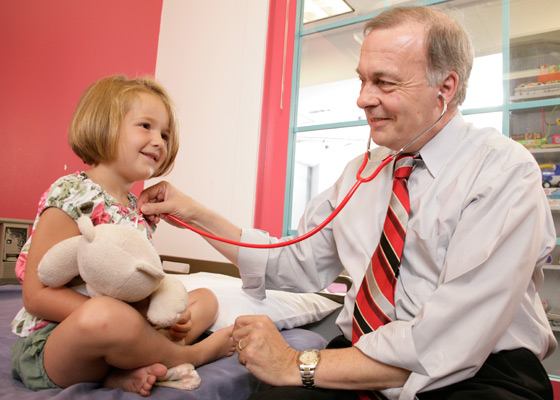How to deal with resurgence of measles cases

The Centers for Disease Control and Prevention reported this week it had counted 78 cases of measles (rubeola), the majority stemming from exposure at Disneyland. In addition to California, cases were found in Arizona, Colorado, Nebraska, Oregon, Utah, Washington state and also Mexico.
Last week, a person who had traveled to India fell ill with measles after returning to Tarrant County. The Public Health Department notified people who might have been exposed.
In 2014, 644 cases were confirmed in 27 states, including Texas.
About three in 10 measles patients get one or more complications such as pneumonia, ear infections, encephalitis or diarrhea. More CDC information.
Dr. Paul Bowman, Chair of Pediatrics at UNT Health Science Center, answered questions about the disease and how to avoid it.
Q: What are the three most essential things to do if you think you or your child has measles?
Dr. Bowman: Call your doctor. Stay home from work or school and avoid contact with young children or others who may be susceptible. Use common sense: Drink lots of fluids, take Tylenol per dosage recommendations, get plenty of rest, seek immediate medical attention for high fever, change in level of consciousness, respiratory difficulty or severe cough.
Q: If a person hasn’t been vaccinated, should they get a vaccination? What about women of childbearing age?
Dr. Bowman: People who have not been immunized against measles should get the vaccine.
Although there is no evidence that the vaccine poses risks to an unborn child, it is not recommended for pregnant women.
Q: What other measures can we take to prevent getting measles? What about babies too young for the vaccine?
Dr. Bowman: Avoid close contact with people who may have measles, or who have flu-like symptoms. Stay away from crowded places if there’s a local measles outbreak. Follow public health precautions that may be issued.
These recommendations also apply to babies not yet immunized. People who have a close exposure to a confirmed case may receive a preventive “gamma globulin” injection. This is not a true vaccine and does not confer immunity or guarantee that the child will not become ill.
Q: What do you say to parents who think vaccinations will harm their kids?
Dr. Bowman: Parents should be aware that the potential dangers to their child’s health is far greater in not being immunized than in receiving immunizations that are currently recommended by their doctors according to nationally approved guidelines. There is no evidence that the measles vaccine causes autism. Epidemics of measles can be devastating, with many lives lost and others with severe illnesses and resulting disabilities.





Social media